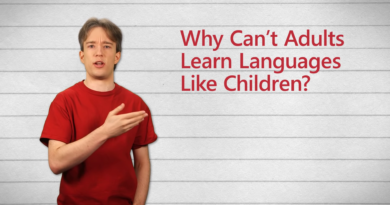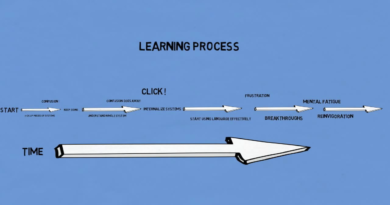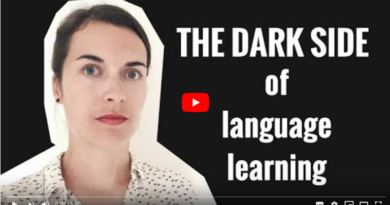A cada ano, as máquinas superam os humanos em atividades que antes acreditávamos serem exclusivamente nossas, desde vencer jogos complexos até transcrever discursos em múltiplos idiomas. Mas o que acontece quando essas máquinas começam a compreender nossas emoções? Este vídeo do TED-Ed explora o potencial e as implicações do reconhecimento emocional por computadores, discutindo como algoritmos de aprendizado de máquina estão se tornando cada vez mais hábeis em interpretar expressões faciais e outros sinais emocionais. Com aplicações que vão desde a educação até a saúde mental, a tecnologia levanta questões importantes sobre privacidade e ética, desafiando-nos a considerar como lidar com essa nova fronteira tecnológica.
| Audio | |
|---|---|
Normal | Slow |
| English Transcript | Tradução |
| With every year, machines surpass humans in more and more activities we once thought only we were capable of. | Com cada ano que passa, as máquinas superam os humanos em mais e mais atividades que antes pensávamos ser capazes de realizar. |
| Today's computers can beat us in complex board games, transcribe speech in dozens of languages, and instantly identify almost any object. | Os computadores de hoje podem nos vencer em jogos de tabuleiro complexos, transcrever discursos em dezenas de idiomas e identificar instantaneamente quase qualquer objeto. |
| But the robots of tomorrow may go futher by learning to figure out what we're feeling. | Mas os robôs do futuro podem ir além, aprendendo a entender o que estamos sentindo. |
| And why does that matter? | E por que isso importa? |
| Because if machines and the people who run them can accurately read our emotional states, they may be able to assist us or manipulate us at unprecedented scales. | Porque, se as máquinas e as pessoas que as operam puderem ler com precisão nossos estados emocionais, poderão nos ajudar ou nos manipular em escalas sem precedentes. |
| But before we get there, how can something so complex as emotion be converted into mere numbers, the only language machines understand? | Mas antes de chegarmos lá, como algo tão complexo quanto a emoção pode ser convertido em meros números, a única linguagem que as máquinas entendem? |
| Essentially the same way our own brains interpret emotions, by learning how to spot them. | Essencialmente da mesma forma que nossos próprios cérebros interpretam emoções, aprendendo a identificá-las. |
| American psychologist Paul Ekman identified certain universal emotions whose visual cues are understood the same way across cultures. | O psicólogo americano Paul Ekman identificou certas emoções universais cujas pistas visuais são compreendidas da mesma forma em diferentes culturas. |
| For example, an image of a smile signals joy to modern urban dwellers and aboriginal tribesmen alike. | Por exemplo, uma imagem de um sorriso sinaliza alegria tanto para moradores urbanos modernos quanto para membros de tribos aborígenes. |
| And according to Ekman, anger, disgust, fear, joy, sadness, and surprise are equally recognizable. | E, segundo Ekman, raiva, desgosto, medo, alegria, tristeza e surpresa são igualmente reconhecíveis. |
| As it turns out, computers are rapidly getting better at image recognition thanks to machine learning algorithms, such as neural networks. | Acontece que os computadores estão rapidamente melhorando no reconhecimento de imagens graças a algoritmos de aprendizado de máquina, como as redes neurais. |
| These consist of artificial nodes that mimic our biological neurons by forming connections and exchanging information. | Estas consistem em nós artificiais que imitam nossos neurônios biológicos formando conexões e trocando informações. |
| To train the network, sample inputs pre-classified into different categories, such as photos marked happy or sad, are fed into the system. | Para treinar a rede, são fornecidas ao sistema amostras de entrada pré-classificadas em diferentes categorias, como fotos marcadas como felizes ou tristes. |
| The network then learns to classify those samples by adjusting the relative weights assigned to particular features. | A rede então aprende a classificar essas amostras ajustando os pesos relativos atribuídos a características particulares. |
| The more training data it's given, the better the algorithm becomes at correctly identifying new images. | Quanto mais dados de treinamento ela recebe, melhor o algoritmo se torna em identificar corretamente novas imagens. |
| This is similar to our own brains, which learn from previous experiences to shape how new stimuli are processed. | Isso é semelhante aos nossos próprios cérebros, que aprendem com experiências anteriores a moldar como novos estímulos são processados. |
| Recognition algorithms aren't just limited to facial expressions. | Os algoritmos de reconhecimento não se limitam apenas às expressões faciais. |
| Our emotions manifest in many ways. | Nossas emoções se manifestam de várias maneiras. |
| There's body language and vocal tone, changes in heart rate, complexion, and skin temperature, or even word frequency and sentence structure in our writing. | Há a linguagem corporal e o tom de voz, mudanças na frequência cardíaca, na tez e na temperatura da pele, ou até mesmo a frequência de palavras e a estrutura das frases em nossa escrita. |
| You might think that training neural networks to recognize these would be a long and complicated task until you realize just how much data is out there, and how quickly modern computers can process it. | Você pode pensar que treinar redes neurais para reconhecer essas nuances seria uma tarefa longa e complicada, até perceber a quantidade de dados disponíveis e a rapidez com que os computadores modernos podem processá-los. |
| From social media posts, uploaded photos and videos, and phone recordings, to heat-sensitive security cameras and wearables that monitor physiological signs, the big question is not how to collect enough data, but what we're going to do with it. | De postagens em redes sociais, fotos e vídeos enviados, e gravações de telefone, a câmeras de segurança sensíveis ao calor e dispositivos vestíveis que monitoram sinais fisiológicos, a grande questão não é como coletar dados suficientes, mas o que faremos com eles. |
| There are plenty of beneficial uses for computerized emotion recognition. | Existem muitos usos benéficos para o reconhecimento emocional computadorizado. |
| Robots using algorithms to identify facial expressions can help children learn or provide lonely people with a sense of companionship. | Robôs usando algoritmos para identificar expressões faciais podem ajudar crianças a aprender ou fornecer um senso de companhia a pessoas solitárias. |
| Social media companies are considering using algorithms to help prevent suicides by flagging posts that contain specific words or phrases. | Empresas de redes sociais estão considerando usar algoritmos para ajudar a prevenir suicídios, sinalizando postagens que contêm palavras ou frases específicas. |
| And emotion recognition software can help treat mental disorders or even provide people with low-cost automated psychotherapy. | E o software de reconhecimento emocional pode ajudar a tratar distúrbios mentais ou até mesmo fornecer psicoterapia automatizada de baixo custo. |
| Despite the potential benefits, the prospect of a massive network automatically scanning our photos, communications, and physiological signs is also quite disturbing. | Apesar dos potenciais benefícios, a perspectiva de uma rede massiva escaneando automaticamente nossas fotos, comunicações e sinais fisiológicos também é bastante perturbadora. |
| What are the implications for our privacy when such impersonal systems are used by corporations to exploit our emotions through advertising? | Quais são as implicações para nossa privacidade quando tais sistemas impessoais são usados por corporações para explorar nossas emoções por meio de publicidade? |
| And what becomes of our rights if authorities think they can identify the people likely to commit crimes before they even make a conscious decision to act? | E o que acontece com nossos direitos se as autoridades acharem que podem identificar as pessoas propensas a cometer crimes antes mesmo de tomarem uma decisão consciente de agir? |
| Robots currently have a long way to go in distinguishing emotional nuances, like irony, and scales of emotions, just how happy or sad someone is. | Os robôs atualmente têm um longo caminho a percorrer para distinguir nuances emocionais, como ironia, e escalas de emoções, como o quão feliz ou triste alguém está. |
| Nonetheless, they may eventually be able to accurately read our emotions and respond to them. | No entanto, eles podem eventualmente ser capazes de ler com precisão nossas emoções e responder a elas. |
| Whether they can empathize with our fear of unwanted intrusion, however, that's another story. | Se eles podem empatizar com nosso medo de intrusão indesejada, no entanto, isso é outra história. |
Contagem de palavras
A tabela abaixo exibe as palavras encontradas neste vídeo, bem como o número de vezes em que aparecem.
Veja também: Para que serve esta tabela?
| Freq. | Palavra | Freq. | Palavra | Freq. | Palavra |
|---|---|---|---|---|---|
| 24 | to | 21 | and | 17 | the |
| 12 | our | 12 | are | 11 | of |
| 8 | is | 8 | can | 7 | or |
| 7 | in | 7 | how | 6 | that |
| 6 | emotions | 6 | by | 6 | a |
| 5 | with | 5 | we | 5 | they |
| 4 | what | 4 | there | 4 | recognition |
| 4 | people | 4 | it | 4 | be |
| 4 | as | 4 | algorithms | 3 | way |
| 3 | us | 3 | them | 3 | such |
| 3 | robots | 3 | photos | 3 | out |
| 3 | network | 3 | more | 3 | may |
| 3 | machines | 3 | learning | 3 | just |
| 3 | into | 3 | identify | 3 | help |
| 3 | for | 3 | even | 3 | emotion |
| 3 | data | 3 | computers | 3 | but |
| 3 | at | 2 | you | 2 | using |
| 2 | training | 2 | think | 2 | these |
| 2 | social | 2 | signs | 2 | scales |
| 2 | same | 2 | sad | 2 | read |
| 2 | provide | 2 | posts | 2 | physiological |
| 2 | own | 2 | only | 2 | not |
| 2 | new | 2 | neural | 2 | networks |
| 2 | modern | 2 | media | 2 | long |
| 2 | learn | 2 | language | 2 | joy |
| 2 | image | 2 | if | 2 | happy |
| 2 | go | 2 | from | 2 | fear |
| 2 | facial | 2 | expressions | 2 | emotional |
| 2 | ekman | 2 | complex | 2 | brains |
| 2 | better | 2 | before | 2 | becomes |
| 2 | accurately | 2 | able | 1 | year |
| 1 | writing | 1 | would | 1 | words |
| 1 | word | 1 | why | 1 | whose |
| 1 | who | 1 | which | 1 | whether |
| 1 | when | 1 | were | 1 | weights |
| 1 | wearables | 1 | ways | 1 | vocal |
| 1 | visual | 1 | videos | 1 | uses |
| 1 | used | 1 | urban | 1 | uploaded |
| 1 | unwanted | 1 | until | 1 | unprecedented |
| 1 | universal | 1 | understood | 1 | understand |
| 1 | turns | 1 | tribesmen | 1 | treat |
| 1 | transcribe | 1 | train | 1 | tone |
| 1 | tomorrow | 1 | today | 1 | through |
| 1 | thought | 1 | those | 1 | this |
| 1 | then | 1 | thanks | 1 | temperature |
| 1 | task | 1 | systems | 1 | system |
| 1 | surprise | 1 | surpass | 1 | suicides |
| 1 | structure | 1 | story | 1 | stimuli |
| 1 | states | 1 | spot | 1 | speech |
| 1 | specific | 1 | something | 1 | someone |
| 1 | software | 1 | so | 1 | smile |
| 1 | skin | 1 | similar | 1 | signals |
| 1 | shape | 1 | sentence | 1 | sensitive |
| 1 | sense | 1 | security | 1 | scanning |
| 1 | samples | 1 | sample | 1 | sadness |
| 1 | s | 1 | run | 1 | rights |
| 1 | respond | 1 | relative | 1 | recordings |
| 1 | recognize | 1 | recognizable | 1 | realize |
| 1 | rate | 1 | rapidly | 1 | quite |
| 1 | quickly | 1 | question | 1 | psychotherapy |
| 1 | psychologist | 1 | prospect | 1 | processed |
| 1 | process | 1 | privacy | 1 | previous |
| 1 | prevent | 1 | pre | 1 | potential |
| 1 | plenty | 1 | phrases | 1 | phone |
| 1 | paul | 1 | particular | 1 | once |
| 1 | object | 1 | numbers | 1 | nuances |
| 1 | nonetheless | 1 | nodes | 1 | neurons |
| 1 | much | 1 | monitor | 1 | mimic |
| 1 | might | 1 | mere | 1 | mental |
| 1 | matter | 1 | massive | 1 | marked |
| 1 | many | 1 | manipulate | 1 | manifest |
| 1 | make | 1 | machine | 1 | low |
| 1 | lonely | 1 | limited | 1 | likely |
| 1 | like | 1 | learns | 1 | languages |
| 1 | irony | 1 | intrusion | 1 | interpret |
| 1 | instantly | 1 | inputs | 1 | information |
| 1 | implications | 1 | impersonal | 1 | images |
| 1 | identifying | 1 | identified | 1 | humans |
| 1 | however | 1 | heat | 1 | heart |
| 1 | have | 1 | going | 1 | given |
| 1 | getting | 1 | get | 1 | games |
| 1 | futher | 1 | frequency | 1 | forming |
| 1 | flagging | 1 | figure | 1 | feeling |
| 1 | fed | 1 | features | 1 | exploit |
| 1 | experiences | 1 | exchanging | 1 | example |
| 1 | every | 1 | eventually | 1 | essentially |
| 1 | equally | 1 | enough | 1 | empathize |
| 1 | dwellers | 1 | dozens | 1 | does |
| 1 | do | 1 | disturbing | 1 | distinguishing |
| 1 | disorders | 1 | disgust | 1 | different |
| 1 | despite | 1 | decision | 1 | currently |
| 1 | cultures | 1 | cues | 1 | crimes |
| 1 | cost | 1 | correctly | 1 | corporations |
| 1 | converted | 1 | contain | 1 | consist |
| 1 | considering | 1 | conscious | 1 | connections |
| 1 | computerized | 1 | complicated | 1 | complexion |
| 1 | companionship | 1 | companies | 1 | communications |
| 1 | commit | 1 | collect | 1 | classify |
| 1 | classified | 1 | children | 1 | changes |
| 1 | certain | 1 | categories | 1 | capable |
| 1 | cameras | 1 | body | 1 | board |
| 1 | biological | 1 | big | 1 | benefits |
| 1 | beneficial | 1 | because | 1 | beat |
| 1 | automatically | 1 | automated | 1 | authorities |
| 1 | assist | 1 | assigned | 1 | artificial |
| 1 | any | 1 | another | 1 | anger |
| 1 | an | 1 | american | 1 | also |
| 1 | almost | 1 | alike | 1 | algorithm |
| 1 | advertising | 1 | adjusting | 1 | activities |
| 1 | act | 1 | across | 1 | according |
| 1 | aboriginal |











Excelente